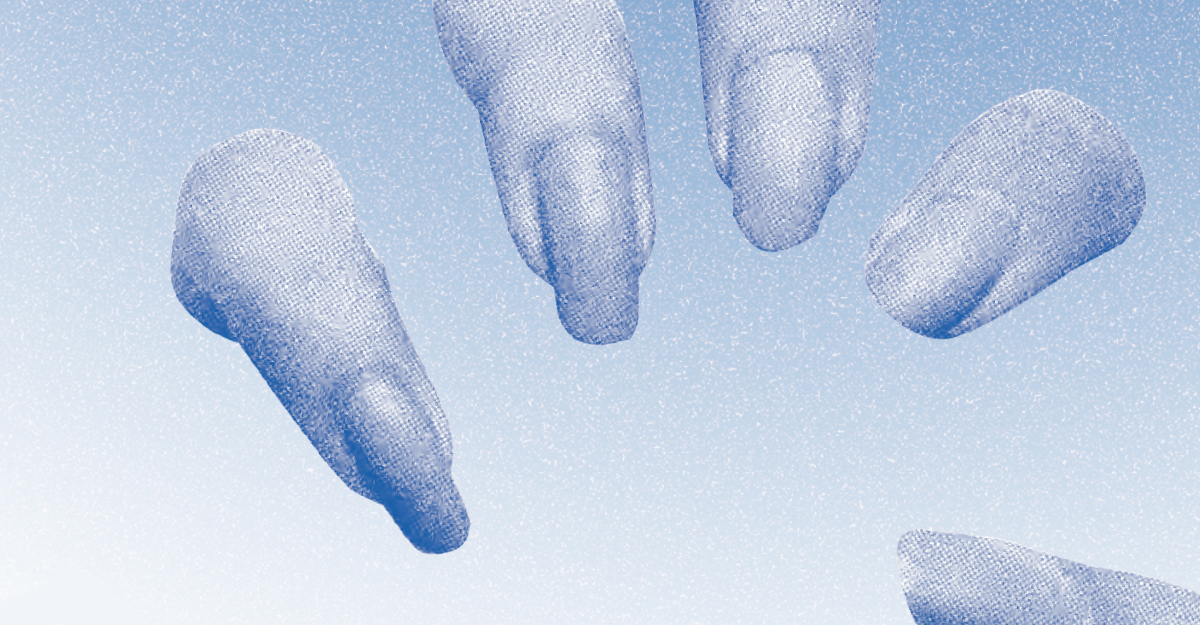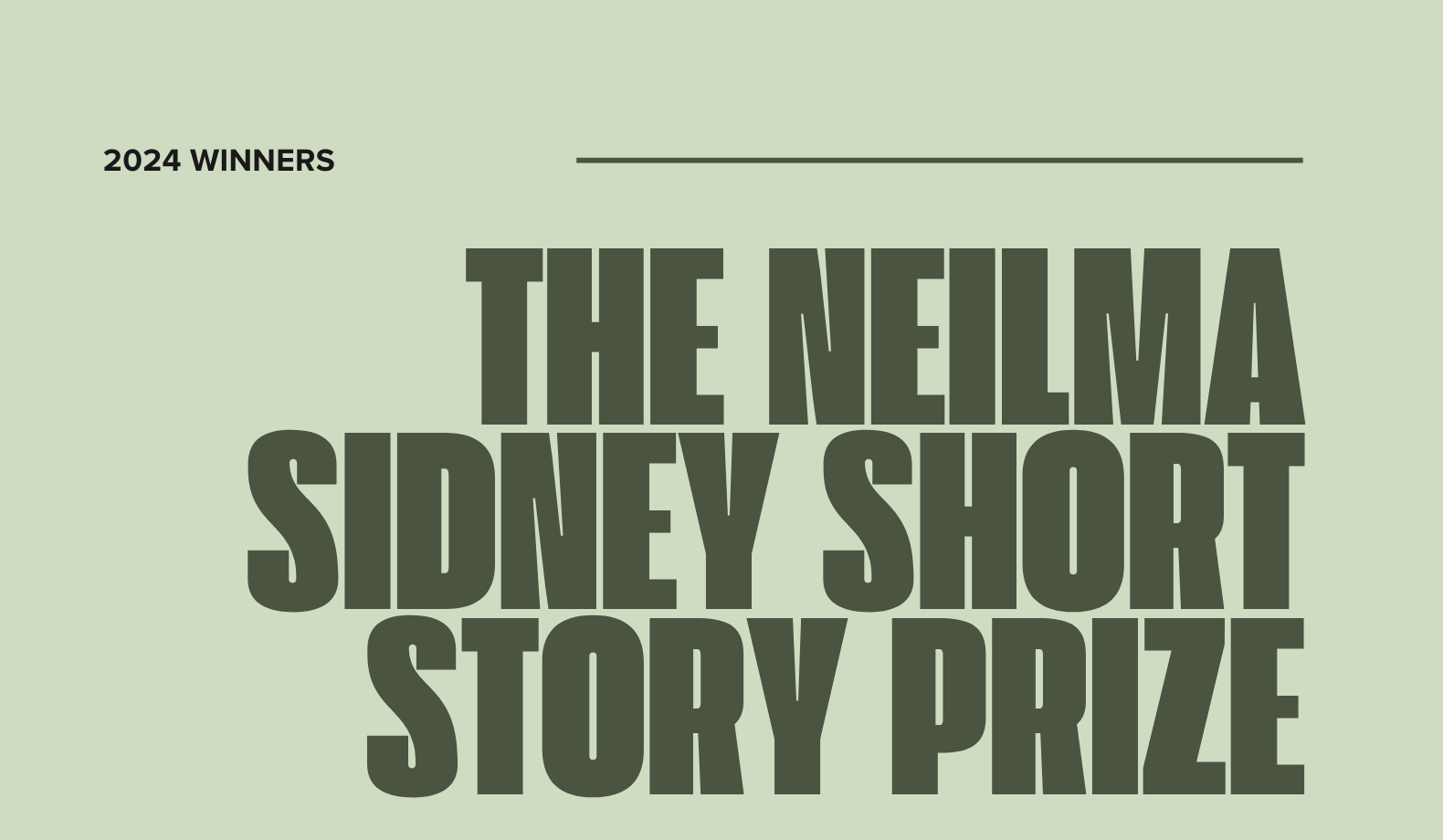Her back is perfectly straight. She perches on a small black leather stool, her neck curving over the thin table in front of her. The fine bones of her shoulders are pinned back, her hands reaching across the table, to hold a stranger’s hand in her own, working fast. A white surgical mask stretches across her nose and mouth, elastic bands keeping it taut, tucked behind her ears. The sharp smell of chemicals seeps in anyway.
Her name tag says Sally. Her real name is Suong — like a fog.
Lunchtime, the busiest time. The salon is full, customers milling around the counter and spilling out the door. It’s thrumming with women talking or listening to someone in their ears, scrolling or tapping on their screens. Their eyes hovering in the distance between real people. A documentary about Taylor Swift plays silently on loop on a small flat screen TV in one corner, the music rumbling from the CD player in the opposite corner completely mismatched.
Her cousin’s friend who got her the job yells across the salon in Vietnamese, this woman’s card’s been declined. Suong’s eyes flick down and she recognises the flooding feeling from that morning when she read the email now sloshing around her head while she’s trying to work. She’d opened it, scanned it, looked up cancellation, to make sure she did understand it, deleted the email. Closed her inbox. Opened her inbox and dragged it out of the trash. Shut the laptop, with a noise like the Yellow Pages hitting the ground.
In the salon they use taped-up phone books for the kids who come in with their mums and can’t reach the table. Suong enjoys her time in the salon; the busy, monotonous work is numbing. She feels a small happiness at the end of every transaction when she sits back and looks at a set of perfect nails on a stranger’s hands. She has done what was expected of her. Then she sees her own hands, small, dry and wrinkled, nails chewed down to the skin, and she’s reminded of home. The next customer swoops into the chair across from her, a new pair of hands before her to clean, shape and paint. She doesn’t have to talk and she seldom does. All she needs to do is concentrate on ten nails at a time and that suits her perfectly.
Her night job is less satisfying and she struggles to find moments of beauty. Five days a week, when she finishes at the nail salon, she changes uniforms and reports to the basement car park of a tall black-glass and grey-cement office building, just a few blocks away from the food court where she spends her days in the nail salon. She has no name tag here. In fact, she’s not even sure if her colleagues know her name. There is a team of about thirty of them, and fifty-two floors to cover.
By the time they’re assigned their floors for the night, they’ve collected their trolleys and scattered through the building. The offices are deserted. The halls are silent, the air conditioner off. A few remaining lights leak their glow out into the dark. If she’s on the right side of the building, she can see the white sails of the Opera House glowing in the night, like ghosts.
She works fast. There is no noise to fill her head and she leaves each room much as she found it. The desks are still scattered with the debris of a day’s work. Suong likes the offices with photos. She likes to imagine what the families are doing — sitting around a table, talking about their day, or perhaps the children are already tucked into bed, their parents reading them stories.
Tonight, as she picks up a photo in a heavy silver frame, she stares at two boys standing with chests puffed, fists just peeking out from the arms of oversized blazers, pressed against their thighs, toothy grins spread across their faces. She catches herself thinking of her brothers, whom she hasn’t seen for a year. She wishes she were reading them a story.
“Hey, you done? I’m going back down.”
She’s startled by one of the other cleaners passing by the office door. She returns the photo, wipes her fingerprints off the frame and pushes her trolley down the hall behind the man who just spoke to her. She doesn’t know his name.
Silently, she returns her trolley and collects her cash, a third of which she spends to make the journey to her uncle and aunty’s house in Bankstown. They own a small shop and live in the apartment above it with their two adult children. Suong sleeps on a fold-out bed in the living area, which she packs away every morning. She’s been doing this for seven months now. Since she stopped going to classes and her parents stopped sending her money. And speaking to her.
She likes it at her aunty’s place. It’s small and cluttered. Much too small for five adults but it reminds her of home. There is always a pot of soup bubbling on the stove, filling the apartment with a thick, sour smell. She slips into it like an old jumper.
“I spoke to David; he’s made an appointment for you tomorrow. He says the lawyer is good, she will help you,” her aunty announces the second Suong steps through the door, thrusting an envelope into her hand.
The envelope had been on the kitchen table for at least a week. Suong had been avoiding it. It could only be bad news.
David is her oldest cousin. He’s in his first year of law school at Sydney Uni. He’s a great source of pride to her uncle and aunty — and they are a great source of shame to him. His whole family is. But he dutifully helps his mother when asked and then leaves. Like all the children in the family.
“Aunty, I can’t afford a lawyer.” Suong takes the letter, which she can see has been opened, and jams it into her back pocket. Doom radiates from it.
Her aunty passes her another envelope, thicker and more tattered.
“Where did you get this?” Suong asks.
“Our friends at the church want to help.”
Staring at the weighty wad of twenty and fifty dollar notes in her hand, the hot dread pulsing from her work pants rises up her body and leaks from her eyes.
“It’s okay, Suong. You go and see the lawyer tomorrow, 8 am.”
Suong promises to herself she will start going to church more and she will do more around the house too.
“Have you heard from my mum?” The words tumble from Suong’s mouth as though it’s just occurred to her. It’s all she’s been trying not to think about for weeks.
Walking towards the bedroom, her aunty pauses and turns only her head, so her eyes don’t reach Suong. “No,” she sighs and shuffles on.
The next morning Suong wakes from a fitful sleep to the sound of the shower through the thin wall next to her head. The apartment is dark. Her uncle gets up at 4 am each day to go to the market. She folds away her bed and sits on the couch it makes, the two envelopes lying next to her. The yellowing-white kitchen table, no more than two feet from where the foot of her bed was, is piled with newspapers and teacups and lit by a streetlight. She chews relentlessly on the small stubs of fingernails, and when she can’t get to them, on the red raw skin around them, waiting for a break in the morning routine of the household so she can shower and get to her appointment.
Her uncle emerges from the bathroom, his towel around his waist and a plume of steam following him. He reaches his broad hand out and firmly squeezes her shoulder as he walks past, clenching his face at the same time as his hand.
When she steps outside — dressed in a plain black polo shirt and black pants that she’s tried to scrub all the speckles of nail polish from — it’s raining. Grey clouds lower like a wet woollen blanket, pulling the morning down, making it feel earlier than it is. The birds are silent, the pavement loudly receiving the rain. A dog in the distance yaps its displeasure.
The bus is full of other people’s morning breath. Suong rests her head against the window and a film forms between her skin and the glass. The headlights of cars flash by, streams of water blurring the road ahead.
When she arrives at the lawyer’s office, she’s made to wait in her wet clothes in the reception area for fifteen minutes. Her long dark hair is pulled back in a bun, and a thin stream of water trickles down the nape of her neck. She can’t see an obvious route to the bathroom — all she can see are glass walls. The floor is so shiny it looks like a pool she could fall into. She’s wedged her fingers under her thighs, and her right leg vibrates at double the rate of her pulse.
She watches as men and women in suits are spat out of the elevator, each with a coffee in one hand and an umbrella encased in a plastic sheath in the other. She thinks about her mother. That was what her mother had hoped for Suong; she had hoped so hard the weight of it nearly crushed them both.
This is not the first time a community has chipped in to help her. At home everyone thought she was so clever and would do so well in Australia. She has let everyone down. She hopes this time it can be different. She hopes the lawyer can help her get her visa back, so she can go back to university and then her mum will talk to her again. Be proud of her again.
A woman comes through a glass door. Suong hears the click-clack of her shoes on the tiles first. She’s wearing a perfectly pressed baby-pink silk shirt, pulled tight by a navy skirt. She sticks out a perfectly manicured hand. The colour matches her shirt and the gloss matches the floor.
“Sew-ong?”
“You can call me Sally.”
The lawyer turns and clips down the hall into a meeting room. Suong has to skip a little to keep up, the blood pumping through her veins running faster than her legs. The lush cream carpet of the meeting room swallows the noise from outside.
The table is uncluttered and long, longer than the sofa bed when it’s folded out. The lawyer pulls out two chairs and sits next to Suong. She’s relieved that she doesn’t have to talk to her across the table. A slim manila folder, a note pad and a pen are laid out in front of the lawyer, which she adjusts with flat hands, to make perfect perpendicular lines, while she introduces herself. There’s a silver jug and glasses in the centre of the table, out of Suong’s reach.
The lawyer opens her folder and starts talking. Suong can’t focus. She studies an office tower in the distance. Layers of small windows. She imagines a person in each, head bent over a keyboard, tapping away, but their screens are blank. Just another set of windows. She tries to count the squares, wonders how each of them is held together. She loses count.
Words are spilling from the lawyer’s mouth: cancelled, Tribunal, compelling, compassionate. Suong can feel the lawyer’s eyes on her. Her own are so heavy. She stares at a post-it note that the lawyer removed from the folder and smoothed onto the table that says 8 am.
Under the table Suong presses her tattered fingertips into the palm of her right hand. Three round pink nails are gently tugging the thin envelope out of her left. They’re not hers, too round, she prefers a bit of an edge.
A change of tone. The lawyer recrosses her legs and sits forward. More words that Suong can’t pin down: out of time, illegal, no discretion. The carpet is suffocating. Her fingertips sting. The chair too tight. Pants too black.
The lawyer leans down, trying to meet Suong’s gaze. She won’t lift her eyes. She curves her neck, tries to fill her head with noise.
“Sally, do you understand me? There’s nothing I can do to help you.”
Suong flinches. The air conditioner hums but the air feels thick, like fog. She thinks of home. She thinks of her brothers and the story she will tell them.



